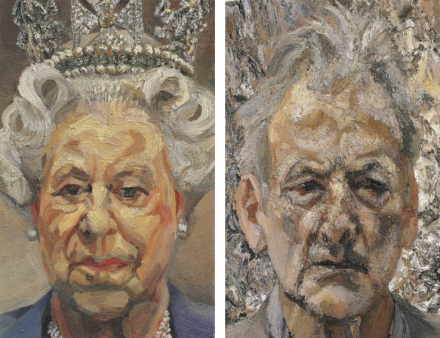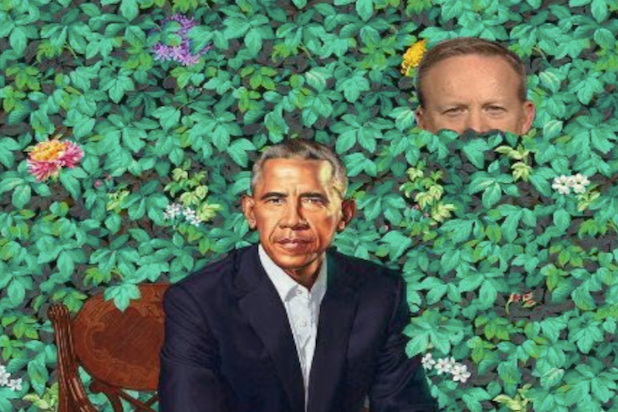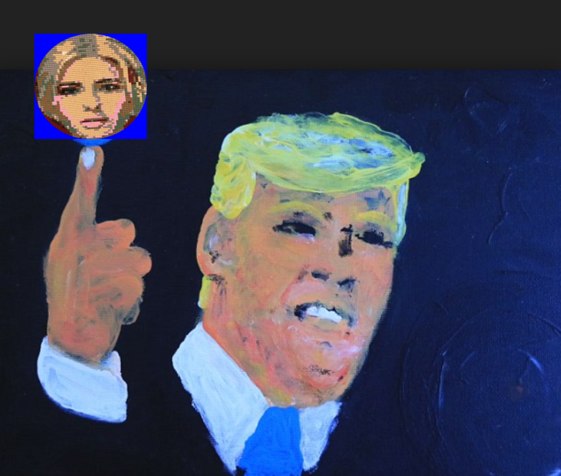-
Survival or Happiness?One could argue that happiness has evolved into life as a survival mechanism. In a general sense, the things that make us happy revolve around concepts that are central to our survival. Essentially, that pleasure and pain are the only motivators of our species and they have evolved in ways that increase our chances of surviving.
I think happiness is a way of being in the world which may have evolved "as a survival mechanism" but limiting happiness's scope to pleasure and pain does not differentiate man from beast. One of the fundamental aspects of humanity is its desire to know, as Aristotle stated in his metaphysics "All men by nature desire to know”. The generation of meaning in life is essential for a happy life in my estimation.
The creative/generative/active power of meaning is only possible in conjunction with our relationship with others. Meaning in this intersubjective sense is inescapable and necessary for survival and if done right :blush: leads to a happy life. -
Meaning of "Being alone is and nothing is altogether not."
Being alone is and nothing is altogether not.
It is his way of clearing the decks, similar to how Descartes clears what is from what is not. What is not can't be thought, but what is can be thought, so then being or cogito. -
What are you listening to right now?Especially like their thanks to State Farm Insurance for making the video possible :rofl:
-
There is no emergence
In reading about Enactivism it cites what Merleau-Ponty said in his 'Phenomenology of Perception'
"The whole universe of science is built upon the world as directly experienced, and if we want to subject science itself to rigorous scrutiny and arrive at a precise assessment of its meaning and scope, we must begin by reawakening the basic experience of the world of which science is the second-order expression"
If Enactivism then cognition/consciousness is the result of our organisms interaction with the world and each other, is not emergent and science's task is explicate it as a system of autopoiesis -
Separating The Art From The Artist
In the 'real world' Roman Polanski plead guilty to statutory rape of a 13 year old and then absconded to Europe where he continues to work, shielded from US justice. He won a 2002 Oscar for the Pianist: Best Director and Best Picture, so the Academy apparently did not hold his actions against his work.
I'm just not in favor of black listing every person who has done something wrong. BECAUSE, Cavacava, there literally won't be anybody left to do the black listing before long.
I don't disagree, but as you indicated many of the alleged abusers such as Woody Allen, have no pending prosecutions. As far as I am aware Harvey Weinstein has not been criminally charged for anything although he is apparently under criminal investigation. Bill Cosby's retrial is scheduled for April. The actual list is short, but that wasn't really to point to my question.
As stated, I agree that the work of an artist is separate from the artist. The moral choice, as I see it, is whether of not to support works by such artists by paying to see their works and thereby enabling them to continue to work or to support their victims by boycott works of these people regardless of the status of their work. In the 'real world' #MeToo's targets are being dumped in mass by their support systems. -
Separating The Art From The Artist
K, but the question is will you go see the next movie by someone who had sex with a 14 year old? Will you endorse his behavior by viewing his film? Is the support of those who have assaulted, taken advantage of others a feasible moral choice? -
Separating The Art From The Artist
Perhaps you can think about it under the conception of authorial intent as put forward by Wimsatt and Beardsley.
According to Wimsatt and Beardsley, a poem does not belong to its author but rather "is detached from the author at birth and goes about the world beyond his power to intend about it or control it. The poem belongs to the public."
Caravaggio was accused of killing one of his love rivals, and Benvenuto Cellini killed his brother's killer with a knife in an act of revenge. The objects these people are made are treasured and Cellini's autobiography is worth reading.
Of course it is different when the artist is alive and has not been dead for 500 years. Many people refuse to go to see films by Roman Polanski or Woody Allen. The way #MeToo is going you'll probably need a score card or something to keep track. -
Would there be a need for religion if there was no fear of death?
I like Becker's analysis in his Denial of Death:
Religion, then, gives the possibility of heroic victory in freedom and solves the problem of human dignity at its highest level. The two ontological motives of the human condition are both met: the need to surrender oneself in full to the rest of nature, to become a part of it by laying down one's whole existence to some higher meaning; and the need to expand oneself as an individual heroic personality. Finally, religion alone gives hope, because it holds open the dimension of the unknown and the unknowable, the fantastic mystery of creation that the human mind cannot even begin to approach, the possibility of a multidimensionality of spheres of existence, of heavens and possible embodiments that make a mockery of earthly logic — and in doing so, it relieves the absurdity of earthly life, all the impossible limitations
and frustrations of living matter. In religious terms, to "see God" is to die, because the creature is too small and finite to be able to bear the higher meanings of creation. Religion takes one's very creatureliness, one's insignificance, and makes it a condition of hope. Full transcendence of the human condition means limitless possibility unimaginable to us.— -
Being or Having: The Pathology of Normalcy
Try Eric Fromm.
The connection between idolatry and alienation is based on the Old Testament. Fromm is not fighting against God as a religiously meaningful symbol for some, but rather he is fighting against religion as an empty place marker, as a golden calf. -
Being or Having: The Pathology of Normalcy
I haven't found Marxists to be the most joyful of folks.
I think there is a big difference between Marx's social/critical theory and vulgar Marxism as practiced ideology. -
Being or Having: The Pathology of Normalcy
Fromm stated in "Marx's Concept of Man" 1961:
The more man transfers his own powers to the idols, the poorer he himself becomes, and the more dependent on the idols, so that they permit him to redeem a small part of what was originally his. The idols can be a godlike figure, the state, the church, a person, possessions. Idolatry changes its objects; it is by no means to be found only in those forms in which the idol has a so called religious meaning. Idolatry is always the worship of something into which man has put his own creative powers, and to which he now submits, instead of experiencing himself in his creative act.
"...what was originally his" was the unity of existence and essence, which alienation has torn apart. Fromm goes on to state:
For Marx, as for Hegel, the concept of alienation is based on the distinction between existence and essence, on the fact that man's existence is alienated from his essence, that in reality he is not what he potentially is, or, to put it differently, that he is not what he ought to be, and that he ought to be that which he could be. -
Portrait of Michelle ObamaDid you like it? Also, the photos look like it is very flat and smoothly painted is that the case?
-
There is no emergence
Do you propose that there can be mind where there is no matter?
No, I agree no matter no mind and if so then mind emerges (evolves or develops?) out out of a particular arrangement of matter...an arrangement that is up to the task. -
The American Gun Control DebateThere are fewer than 13 million firearms in circulation in Russia, compared with an estimated 300 million in the United States. That works out to about 9 guns per 100 people in Russia and closed to 100 guns per 100 people in America.
The most recent homicide statistics for Russia show that there were 21,603 killings in 2009.
A global comparison of gun related deaths by the numbers is flawed because of national and historical differences between countries. -
The American Gun Control Debate
I don't really know what the difference is between those who support gun control and those who oppose it. Is it that they disagree over whether or not gun control will make the country safer, or is it that opponents of gun control believe that the right to own a gun is more important than a safer country?
We already have some forms of gun control is USA. As a practical matter the most I think those who want gun control can hope for is an increase in the age that a person can purchase certain weapons. There is current legislation being introduced into the Senate by Diane Feinstein of California to raise the age to purchase certain weapons to 21. The NRA have most politicians in their pocket and they will support opposition candidates to those who come out for gun control. The amounts of money NRA invests is considerable.
The USA is 350 million population and it has a lot of guns. I don't believe that gun laws would be as effective here as they have been in other, much smaller countries. There is a long tradition of gun use in the USA's history. I think the framers of the Constitution put in the provision in our founding documents out of the fear that some manic or ultra rabble might make use of such weapons necessary. It does not seem that far fetched these days and I don't not trust our plutocratic government very far. -
The American Gun Control DebateI own a 38 and I love skeet shooting with a well made shotgun, but there is simply no way a 19 year old should be allowed to legally purchase and AR-15, it is really does not make any sense to me. This rife has no good reason, except to kill a lot of people quickly,
-
Belief
A belief is a propositional attitude.
That is, it can be placed in a general form as a relation between someone and a proposition. So "John believes that the sky is blue" can be rendered as
Believes(John, "The sky is blue")
B(a,p)
No belief talk ever helped a pitcher pitch a 'no-hitter'. -
What will Mueller discover?
Mueller obtained another guilty plea -- this one from a guy named Richard Pinedo, who operates a company that helps skirt security requirements on online payment systems. Doesn't seem to be connected to Trump campaign. www.justice.gov/file/10… -
What will Mueller discover?I listened to what Rubinstein said and he was clear that the Russians had set up American based network of political activists who thought they were working for American concerns, not Russians.
But as you point out there is more to come. -
What will Mueller discover?Rod Rosenstein to announce indictments of Russians in U.S. election meddling - live updates
On Friday, a D.C. federal grand jury returned an indictment against 13 Russian nationals and three Russian entities that accuses them of violating U.S. criminal laws to meddle in U.S. elections and political processes. According to a spokesman for the special counsel's office, the indictment charges all of the defendants with conspiracy to defraud the U.S., as well as "three defendants with conspiracy to commit wire fraud and bank fraud, and five defendants with aggravated identity theft." -
What are you listening to right now?"If Noel Fielding and Freddie Mercury had a love child it would be Foxy Shazam vocalist Eric Sean Nally."
-
Is boredom an accurate reminder that life has no inherent meaning?
There are at least 5 different types of boredom:
1)Indifferent boredom, defined as being relaxed, withdrawn and indifferent
2)Calibrating boredom, defined as being uncertain and receptive to change/distraction
3)Searching boredom, defined as being restless and in active pursuit of change/distraction
4)Reactant boredom, defined as being motivated to leave a situation for specific alternatives
(2006, Thomas Goetz/Anne Frenzel)
5)Apathetic boredom, an especially unpleasant form that resembles learned helplessness or depression. It is associated with low arousal levels and high levels of aversion.
(2013 Thomas Goetz/Anne Frenzel)
Take a look at Soren Kiergaard's
THE ROTATION OF CROPS
A Venture in a Theory of Social Prudence
People with experience maintain that proceeding from a basic principle is supposed to be
very reasonable; I yield to them and proceed from the basic principle that all people are
boring. Or is there anyone who would be boring enough to contradict me in this regard?
This basic principle has to the highest degree the repelling force always required in the
negative, which is actually the principle of motion. It is not merely repelling but infinitely
repulsive, and whoever has the basic principle behind him must necessarily have infinite
momentum for making discoveries. If, then, my thesis is true, a person needs only to
ponder how corrupting boredom is for people, tempering his reflections more or less
according to his desire to diminish or increase his impetus, and if he wants to press the
speed of the motion to the highest point, almost with danger to the locomotive, he needs
only to say to himself: Boredom is the root of all evil. It is very curious that boredom,
which itself has such a calm and sedate nature, can have such a capacity to initiate
motion. The effect that boredom brings about is absolutely magical, but this effect is one
not of attraction but of repulsion.
Susan Sontag from her diaries takes a different view. (Brian Pickering goes into great detail about boredom)
Function of boredom. Good + bad
[Arthur] Schopenhauer the first imp[ortant] writer to talk about boredom (in his Essays) — ranks it with “pain” as one of the twin evils of life (pain for have-nots, boredom for haves— it’s a question of affluence).
People say “it’s boring” — as if that were a final standard of appeal, and no work of art had the right to bore us.
But most of the interesting art of our time is boring. Jasper Johns is boring. Beckett is boring, Robbe-Grillet is boring. Etc. Etc.
Maybe art has to be boring, now. (Which obviously doesn’t mean that boring art is necessarily good — obviously.)
We should not expect art to entertain or divert any more. At least, not high art.
Boredom is a function of attention. We are learning new modes of attention — say, favoring the ear more than the eye— but so long as we work within the old attention-frame we find X boring … e.g. listening for sense rather than sound (being too message-oriented). Possibly after repetition of the same single phrase or level of language or image for a long while — in a given written text or piece of music or film, if we become bored, we should ask if we are operating in the right frame of attention. Or — maybe we are operating in one right frame, where we should be operating in two simultaneously, thus halving the load on each (as sense and sound).
Welcome to TPF! -
What are you listening to right now?
I was just trying to make it like a painting where you can see the different parts but then you also see the whole of it. With that particular song, that’s what I was trying to do... with the concept of time, and the way the characters change from the first person to the third person, and you’re never quite sure if the third person is talking or the first person is talking. But as you look at the whole thing, it really doesn’t matter.

-
Portrait of Michelle Obama

What Freud did, of course, as regular users of this site will recognize, was paint the Queen as his alter ego, giving her his eyebrows, his small eyes, his deep facial folds and, most oddly, his brick-like chin. Painted, of course, in his characteristic style, the Queen is Freud. Other masters, from Fouquet in the 15th century onwards, have done likewise. Royalty in almost all spiritual traditions is a symbol of purity that artists use as they see fit. Freud here, like his predecessors, has depicted his monarch as the monarch in his mind. -
Portrait of Michelle ObamaI am still thinking about Obama's portrait...it may become an excellent meme

-
Portrait of Michelle Obama
Harper's Bazaar:
Milly is a fitting choice for Obama's portrait wardrobe, not only because it matches her fresh yet approachable style, but also because the designer is similarly passionate about women's rights and female empowerment.
Smith has been a Planned Parenthood supporter for years and even designed a T-shirt to benefit the organization last fall. Her Fall 2017 collection, presented in the wake of the 2016 election, was about rising up from a dark, "fractured" place. Even her Fall 2018 collection, which debuted last week, was inspired by "love, inclusiveness and the desire for equality." -
The American Gun Control Debate19 yr. old Nicholas Cruz, the suspect in the Florida killings, used an AR-15 assault-style rifle and he had “multiple magazines” on him, according to reports.
It's hard to believe that this fucking weapon is still on the streets. Shows what money can do in this America. -
Portrait of Michelle Obama
Also. MO is far more stylized than BO's portrait. Do you think perhaps that the stylizing of a portrait tries to remove its particularity, aiming at universality, where the emotional warmth of the subject (MO} has to be sacrificed? -
Portrait of Michelle ObamaAs I have indicated I have not really spent the same amount of time thinking about Barack's portrait, at least not as much as Michelle', but if you were to frame Obama as an emergent image, emerging out of a society where " they all look the same", this image might make sense.
His hands were screwing me up, I mentioned this somewhere along the way. I think and I need to confirm or flesh out what his hands placement means, if anything, but it sure as hell looks like a historical remnant from somewhere, then perhaps a key to the portrait. -
Portrait of Michelle ObamaK, at least you have a rationale not just emotive crap. I think, and I tried to indicate that I think of this as a contemporary form of American folk art. I am not sure sure what folk art looks like in Australia, but I think I see an evolution between what Amy Shearld is doing and what American folk artists were doing in the 19th Century. Note the gown in the painting, is thought to be related to quilts produced in Gee Bend, Alabama.
Mrs. Obama wore a gown by Milly that featured a geometric print. “It reminded me of the Dutch artist Piet Mondrian’s geometric paintings,” said Sherald. “But Milly’s dress also reminds me of the quilt masterpieces made by the women of Gee’s Bend, a small black community in Alabama.”
I have not thought enough about Barack's portrait, but here are some very amusing tweets I have seen:
Sean Spicer hiding in the bushes:

or

Cavacava
Start FollowingSend a Message
- Other sites we like
- Social media
- Terms of Service
- Sign In
- Created with PlushForums
- © 2026 The Philosophy Forum


